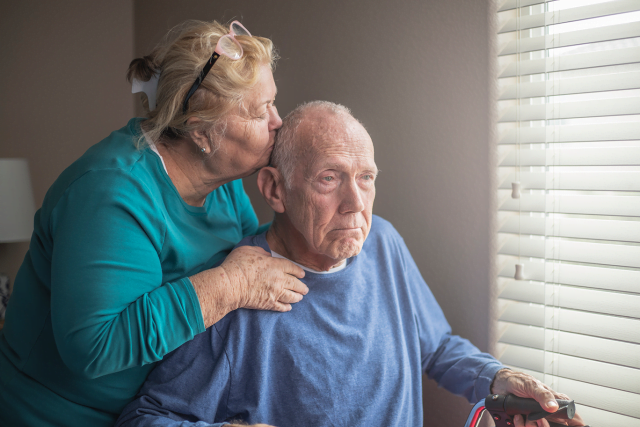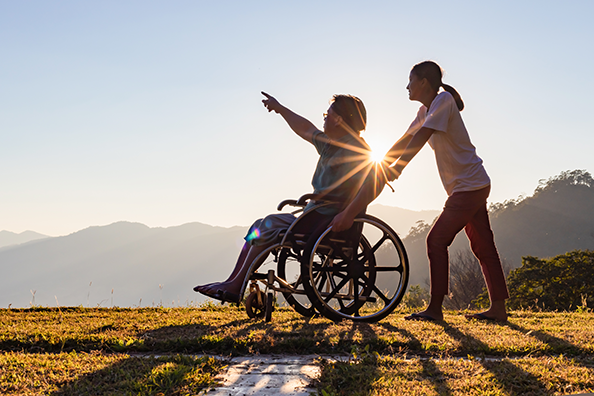
State Paid Leave: Help for Women Caring for Spouses
In the absence of a national paid family leave policy, 13 states have filled the breach with their own programs to partially compensate workers who take time off to care for an ill family member.
In a new study examining the laws in three of these states – California, New Jersey, and New York – women are big beneficiaries of being able to take time off with financial support while they care for a spouse who has fallen ill.
Nationwide, about 8 percent of working wives whose husbands develop a medical problem quit their jobs in response to the stress and strain of intensive caregiving duties. But in the researchers’ comparison of California, New Jersey and New York with states that do not offer family paid leave, the wives who live in states with paid leave programs are substantially less likely to leave a job to care for home or family after the spouse goes to the emergency room or winds up in the hospital.
Paid leave for women who care for spouses and parents – and they are usually older women – has less political support than paid leave for parents caring for children, the researchers said. This study provides new evidence that supporting older caregivers helps women keep working after a spouse’s health shock, particularly less-educated, lower-paid and often minority women.
They get the most from these programs, because the types of jobs they hold typically do not provide the scheduling flexibility and employee benefits that professional women have. The boost the policies give to lower-paid women suggests that “government-provided paid family leave benefits might reduce the disparities in leave access,” the researchers said.
Under paid leave policies, states use payroll tax revenues to compensate caregivers temporarily, and they do not replace all of their lost wages. California passed the first policy, which replaces the wages of employees caring for a family member at a rate of 60 percent to 70 percent for up to eight weeks. New York caregivers receive about two-thirds of their pay for up to 12 weeks, and in New Jersey, the rate is 85 percent of pay for up to 12 weeks.
This new research is based on more than two decades of data from a survey that includes information about household composition and medical care received by family members.
Paid family leave, the researchers concluded, has “large and significant impacts” on wives who are caregivers and ensures they have more job continuity.
To read this study by Courtney Coile, Maya Rossin-Slater, and Amanda Su, see “The Impact of Paid Family Leave on Families with Health Shocks.”
The research reported herein was derived in whole or in part from research activities performed pursuant to a grant from the U.S. Social Security Administration (SSA) funded as part of the Retirement and Disability Research Consortium. The opinions and conclusions expressed are solely those of the authors and do not represent the opinions or policy of SSA, any agency of the federal government, or Boston College. Neither the United States Government nor any agency thereof, nor any of their employees, make any warranty, express or implied, or assumes any legal liability or responsibility for the accuracy, completeness, or usefulness of the contents of this report. Reference herein to any specific commercial product, process or service by trade name, trademark, manufacturer, or otherwise does not necessarily constitute or imply endorsement, recommendation or favoring by the United States Government or any agency thereof.






